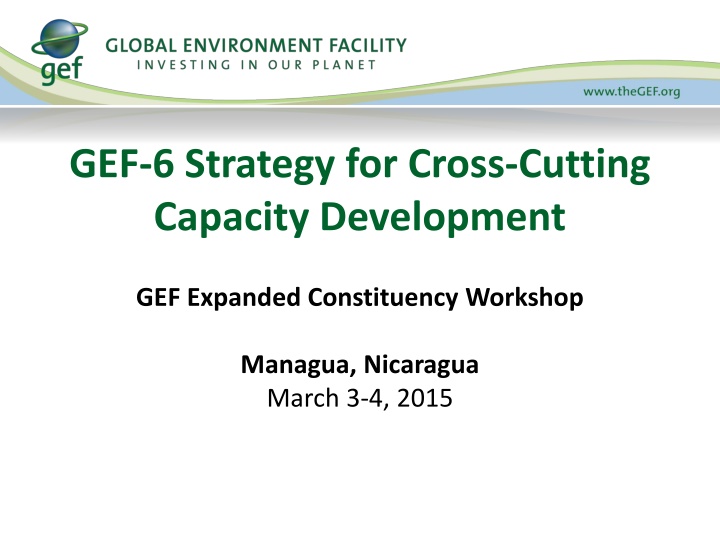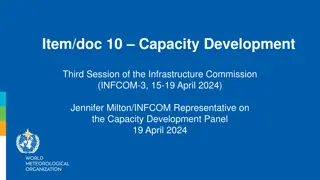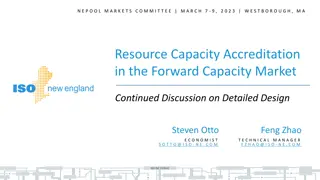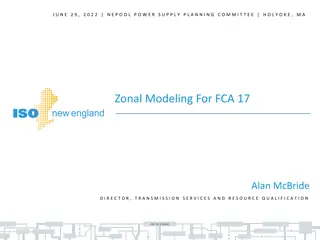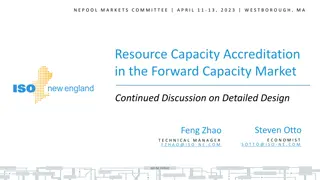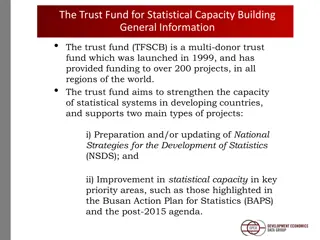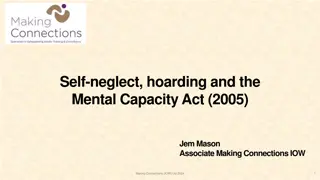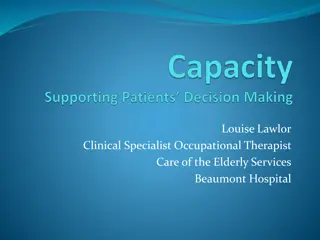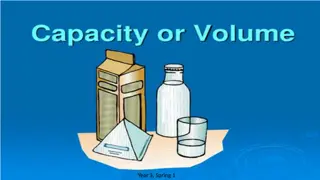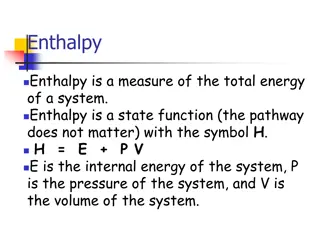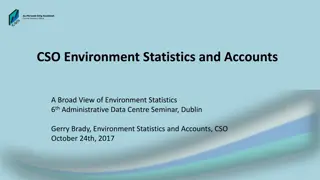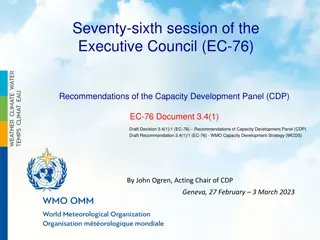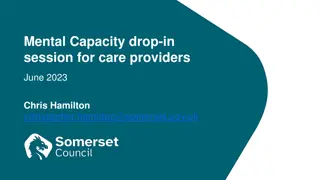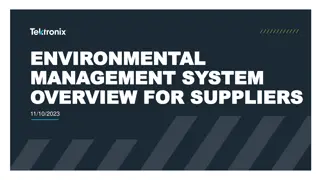Capacity Development Strategies and Examples in Environmental Management
Capacity development (CD) is the enhancement of individuals, organizations, and societies to tackle environmental issues and integrate environmental sustainability into policies. The Global Environment Facility (GEF) focuses on National Capacity Self-Assessments (NCSAs) and critical projects to build countries' capacities for implementing environmental conventions. Funded projects in various countries demonstrate successful capacity building efforts through improved planning, decision-making, and policy frameworks.
Uploaded on Sep 25, 2024 | 4 Views
Download Presentation

Please find below an Image/Link to download the presentation.
The content on the website is provided AS IS for your information and personal use only. It may not be sold, licensed, or shared on other websites without obtaining consent from the author.If you encounter any issues during the download, it is possible that the publisher has removed the file from their server.
You are allowed to download the files provided on this website for personal or commercial use, subject to the condition that they are used lawfully. All files are the property of their respective owners.
The content on the website is provided AS IS for your information and personal use only. It may not be sold, licensed, or shared on other websites without obtaining consent from the author.
E N D
Presentation Transcript
GEF-6 Strategy for Cross-Cutting Capacity Development GEF Expanded Constituency Workshop Managua, Nicaragua March 3-4, 2015
What is meant by capacity development (CD)? The process by which individuals, organizations and societies strengthen their ability to address environmental issues, manage natural resource issues, and mainstream environmental sustainability into development policies, plans and decisions.
Strategic focus for CD (GEF) GEF STRATEGIC APPROACH TO CAPACITY BUILDING Four pathways to develop countries capacity to implement the Rio Conventions (Council Decision C/22.8) Capacity Development (CD) through: 4. 1. 2. 3. Critical Programs for CD in LDCs & SIDS National Capacity Self- Assessments (NCSAs) Greater attention to CD in individual projects Cross-cutting CD projects
1. National Capacity Self- Assessments (NCSAs) National Capacity Self-Assessments: Results, Lessons Learned, Opportunities 4
23 CB2 projects in GEF-4 Independent assessment Very relevant to address capacity gaps identified in NCSAs. Projects have strengthened multi-sectoral processes, promoted policy and legislation harmonization, and mainstreamed global environmental issues. They used a holistic approach to develop the required capacities; addressing existing bottlenecks, and lack of skills and knowledge.
Examples of Funded Projects- GEF5 Cote d'Ivoire Strengthened Environmental Management Information System for Coastal Development to meet Rio Convention Objectives Burkina Faso Generating Global Environmental Benefits from Improved Local Planning and Decision-making Systems in Burkina Faso Ukraine Integrating Rio Convention Provisions into Ukraine's National Environmental Policy Framework Togo Strengthening National and Decentralized Management for Global Environmental Benefits Costa Rica Capacity Building for Mainstreaming MEA Objectives into Inter-ministerial Structures and Mechanisms Afghanistan Developing Core Capacity for Decentralized MEA Implementation and Natural Resources Management in Afghanistan Sri Lanka Ensuring Global Environmental Concerns And Best Practices In the Post-Conflict Rapid Development Process of Sri Lanka through Improved Information Management
GEF-6 CCCD Overall Goal (available 34 M USD) To help countries meet and sustain global environmental outcomes by strengthening key capacities that address challenges and remove barriers common to the MEAs that the GEF serves and to mainstream the global environment into decision making.
Strategic Objectives CCCD-1: To integrate global environmental needs into management information systems and monitoring. CCCD-2: To strengthen consultative and management structures and mechanisms. CCCD-3: To integrate Multilateral Environmental Agreements provisions within national policy, legislative, and regulatory frameworks. CCCD-4: To pilot innovative economic and financial tools for Convention implementation. CCCD-5: Updating of National Capacity Self-Assessments.
Priorities and focus for GEF6 CCCD Strengthen the capacities of LDCs and SIDS. Identified in GEF-funded National Capacity Self-Assessments (NCSA). Introduce innovative approaches to improve implementation of conventions. Be results-based, leading to measurable, sustainable capacity outcomes, and include a set of monitoring indicators Contribute to cost-efficiency through promoting harmonization and operational effectiveness in Convention obligations. Create synergies in the implementation of the three Rio conventions and other MEAs. Strengthen environmental governance Be complementary with ongoing or planned GEF initiatives.
Thank you for your attention Any questions? More information : Pilar Barrera Rey The Global Environment Facility pbarrera@thegef.org www.thegef.org
